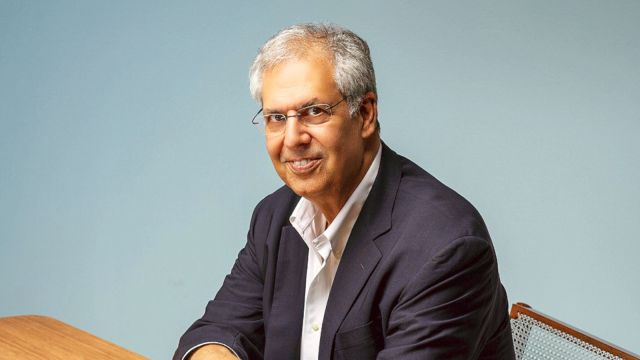Noel Tata joins Tata Sons board
Tata Trusts which holds over 66 per cent stake in Tata Sons has three nominees on the board of Tata Sons. Apart from Noel Tata, others included TVS group chief Venu Srinivasan and former Defence Secretary Vijay Singh.
 Noel Tata, who will turn 67 later this year, was lucky in the third instance in 2024. After the passing away of Ratan Tata, he was selected as the Chairman of Tata Trusts. (File image)
Noel Tata, who will turn 67 later this year, was lucky in the third instance in 2024. After the passing away of Ratan Tata, he was selected as the Chairman of Tata Trusts. (File image)Tata Trusts Chairman Noel N Tata has been appointed on the board of Tata Sons Ltd, the holding company of various Tata group companies.
Tata was appointed on the firm’s board last week, a source in the Tata group confirmed. However, Noel Tata, who was elected as Chairman of the Trusts after the demise of Ratan Tata last month, won’t be able to become the Chairman of Tata Sons as Ratan Tata separated the roles of Chairman of Tata Sons and Tata Trusts to prevent the same person from heading both the institutions.
Tata Trusts which holds over 66 per cent stake in Tata Sons has three nominees on the board of Tata Sons. Apart from Noel Tata, others included TVS group chief Venu Srinivasan and former Defence Secretary Vijay Singh.
Other Directors on Tata Sons board include industrialist Ajay Piramal, former Unilever global COO Harish Manwani, JP Morgan India, South Asia Chairman Leo Puri, former World Bank official Anita M George, JLR CEO Ralph Speth and Tata Sons group CFO Saurabh Agarwal. Pallonji Mistry group which holds 18.4 per cent stake in Tata Sons doesn’t have any nominee on the Tata Sons board.
In 2012, when Ratan Tata retired as Tata Sons Chairman, Noel Tata was in the race to become his successor. The selection committee considered several names including Noel’s but Ratan Tata was not in his favour who felt his brother “lacked the experience” to run the conglomerate, indicating his frosty relationship with Noel.
The group eventually selected Cyrus Mistry who also “lacked experience” in running a big business group. Mistry, who is Noel’s brother-in-law – his sister Aloo is married to Noel – was initially supported by Ratan Tata as he also considered the Pallonji Mistry family’s 18.4 per cent stake in Tata Sons, the holding company of the Tata group. They fell out in a bitter boardroom battle and Mistry was ousted from the Tata group in 2016.
Noel Tata missed another chance to head Tata Sons in January 2017 as the selection committee and Ratan Tata, overlooked Noel Tata again, and put the mantle on N Chandrasekaran who was successfully running India’s largest IT firm TCS. The thinking in the group then was that let a competent professional head Tata Sons and chart the future course of the group’s operations.
Noel Tata, who will turn 67 later this year, was lucky in the third instance in 2024. After the passing away of Ratan Tata, he was selected as the Chairman of Tata Trusts. Ratan Tata, as Chairman of Tata Trusts and former Chairman of Tata Sons, wielded considerable influence in the affairs of the Tata group. Noel will play a key role in the selection of the next Chairman of Tata Sons in 2028 when the tenure of Chandrasekaran ends.
The new Tata Trusts chief has been associated with the Tata group for over 40 years. He currently serves on the Board of various Tata group companies, including as the Chairman of Tata International Limited, Trent, Voltas & Tata Investment Corporation and as the Vice Chairman of Tata Steel and Titan Company Limited.
During Noel Tata’s tenure as chairman of Trent Ltd, the company’s financials have shown impressive growth. The company’s total revenue rose from Rs 2,381.44 crore in fiscal 2015 to Rs 12,277.49 crore in the fiscal ended March 2024. Net profit also jumped from Rs 129 crore in FY2015 to Rs 1,435.82 crore in FY24. Its market capitalisation multiplied several times to Rs 2.93 lakh crore now.
He was associated with Tata International Ltd as the Managing director from August 2010 to November 2021, where he grew the company from a turnover of $500 million to over $3 billion in a little over a decade.
Noel Tata will have many challenges before him as the Chairman of Tata Trusts and Director on the Tata Sons board. He has to ensure that corporate governance is practiced in letter and spirit in the group and shareholder wealth is not eroded in group companies. In short, he is expected to ensure that group companies perform well and explore new opportunities on the industrial horizon.



- 01
- 02
- 03
- 04
- 05




























